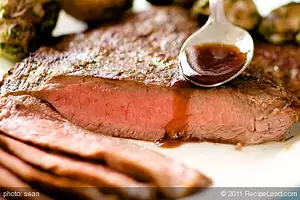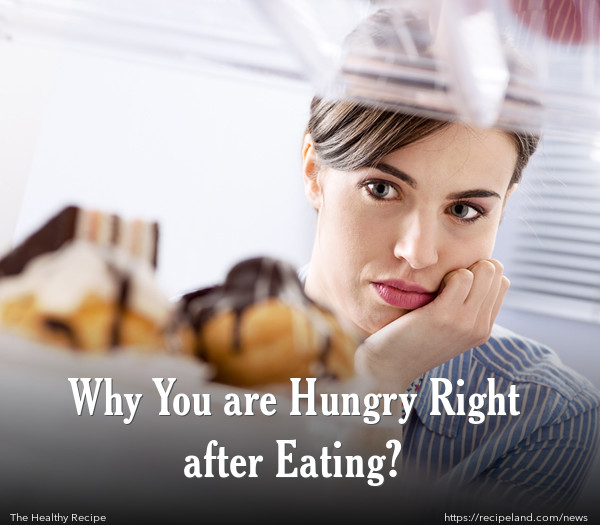Some people will find that they keep eating and eating, long after they are full. There are many reasons for this, from the ingredients in your foods to the habits that you have. Find out how to form better habits and make healthier choices.
Have you ever just finished a big meal to discover that you still feel hungry? This might be the foods you are eating and certain ingredients in them that trick your body.
Here are some examples of foods or bad habits that can cause your body to feel hungry, even after a great meal:
Soda and sweetened beverages: Probably the biggest culprit when it comes to adding high fructose corn syrup to our diets. Soda, sweet tea and other sweetened sports drinks and beverages can account for nearly 70% of our intake of high fructose corn syrup.
A recent study conducted at Yale University showed how brain function was reduced while adults were drinking sweetened beverages. The areas of the brain that were found to be most affected were the areas that help to control appetite and the feelings of being full. When this brain function is inhibited, we feel hungry, even though we have just eaten.
Instead of reaching for a drink sweetened with high fructose corn syrup, reach for something unsweetened or naturally sweetened instead. High fructose corn syrup disrupts the body’s ability to process “leptin,” which is a hormone that tells us when we are full.
Canned foods: Canned foods often contain high levels of bisphenol-A (BPA), which is now being thought of by the FDA as a chemical that is somewhat concerning.
Studies are now showing that exposure to BPA may result in abnormal levels of leptin, and can cause significant food cravings that lead directly to obesity.
Skipping breakfast: People who skip breakfast or do not eat enough are putting themselves at risk for being unaware when they are full. Studies have shown that those who consume 300 calories or less for breakfast are twice as likely to gain weight than people who consume 500 calories or more.
When you eat enough for breakfast, you avoid rapid insulin spikes and drops throughout the day. These spikes and drops are what cause you to suddenly feel hungry. Also, people who add sufficient protein to their breakfast are less likely to become excessively hungry later in the day compared with those who lean toward the pancakes and syrup.
Not enough leafy greens: People who get enough leafy greens in their diets are more likely to feel comfortably full throughout the day, as these veggies help to regulate the metabolism. In addition, they help to prevent against fatigue and depression, two causes of overeating that can lead to weight gain.
Leafy greens are also an excellent source of B vitamins and folate, and high levels of folate have been shown to increase weight loss—people who have good folate levels will lose more than 8 times the weight than those with low levels will. Add in romaine lettuce, spinach, collard greens or radicchio for best results!
Avoiding tea: Recent studies show that people who opt for a cup of tea in the afternoon will lose more weight and have fewer cravings than those who skip the afternoon tea. One cup of black tea can dramatically help when trying to control blood sugar levels, especially after consuming carbs.
This means you will feel fuller for a longer period of time after eating, and be less likely to have cravings. The polyphenolic compounds that are found in black tea get the credit for this appetite control.
Not drinking enough water: When you are dehydrated, your body thinks it is hungry. This is why it is a great idea to start every meal with a large glass of water. Your body will begin by hydrating itself, making you less likely overeat, and more likely recognize when you are full.
Drinking extra water is also great for people who are trying to lose weight, as you are probably going to consume fewer calories if you fill your stomach with water just before a meal.
Having nothing to do: People who report feeling bored are likely to overeat, just for something to do. Make mealtime an event, with a beginning and an end.
Too much cold cereal: People who reach for cereal when they are hungry are risking the insulin spikes and dips we mentioned earlier. Instead of cold cereal, reach for a bowl of hot oatmeal, which is filled with soluble fibre and will keep you feeling full longer.
Instead of giving into the cravings, pay attention to what you are eating, and when you are eating it. There are choices that you can make to help curb cravings and habits that you can learn to stop eating when you are full—lessening the risk of weight gain and obesity, as well as many other health conditions.
SOURCES: https://www.foxnews.com/health/2014/02/09/8-reasons-youre-still-hungryeven-after-just-ate/https://www.webmd.com/diet/features/cravings-why-they-strike-what-to-do; Image courtesy of stockimages / FreeDigitalPhotos.net










Comments